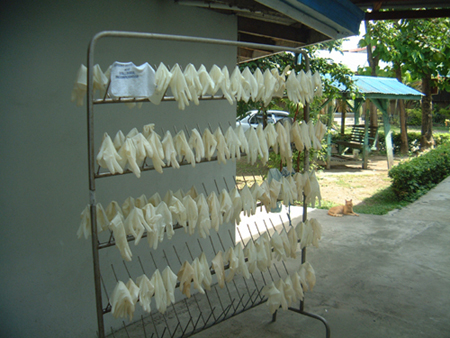
In 1970, a grassroots movement to protest concerns over our environment resulted in the recognition of Earth Day. Fast forward 40 years, and this grassroots movement to "go green" has evolved into a mainstream lifestyle.
It has become a corporate and social responsibility to "go green", and one industry making strides to lessen their carbon footprint is health care. According to Healthcare Without Harm, U.S. hospitals are one of the top waste producers, generating millions of tons of waste each year. Many of these discarded medical items are unused, unexpired surplus medical supplies that for various regulatory reasons can no longer be used by the hospital.
In contrast to the U.S.'s medical surplus, many hospitals in developing countries must ask patients to purchase the supplies needed to treat them. The World Health Organization estimates over 10 million children under the age of five will die each year due to inadequate medical care in the developing world. In efforts to bridge this gap between the surplus that exists in the U.S. health system and the great need existing in hospitals abroad, some U.S. hospitals participate in surplus donation programs.
"If I had had this endotrachael tube in Africa, I could have saved a baby's life two weeks ago." These words came from a doctor that served in Niger, one of the least developed countries in the world, as she toured MedShare's 50,000 square-foot warehouse filled with donated surplus medical supplies and equipment.
MedShare is a national nonprofit that recovers surplus medical supplies and equipment from hospitals and medical companies and redistributes it to needy hospitals in the developing world. They offer a Medical Surplus Recycling Program to hospitals where staff can donate their surplus medical supplies to be distributed to those in need. Each week, MedShare collects over 2,500 pounds of unused, unexpired surplus medical supplies from participating hospitals in Atlanta and the Bay Area.
"In countries where medical care is limited, simple things like surgical gloves are washed and reused until there are holes in them, where in the U.S., supplies like that are in abundance. Instead of discarding excess supplies, MedShare allows hospitals to give them to someone who desperately needs them," said A.B. Short, Co-founder and CEO of MedShare. 
With the recent earthquake in Haiti, MedShare was able to quickly respond to the emergency need for medical supplies, and has since sent over 75 tons of requested medical supplies to hospitals and medical relief workers. That's 75 tons of medical supplies that might have been tossed in a landfill, but instead were used to save the lives of earthquake victims.
MedShare's Medical Recycling Program offers hospitals and medical companies a unique greening practice that improves our environment and global health. To further eliminate waste and to respect the needs of the health recipient abroad, MedShare only ships the recipient medical items specifically requested. In 10 years of service, their supply recovery efforts have saved over one million cubic feet of landfill space, and provided over $70 million worth of medical supplies and equipment to hospitals in the developing world.
To learn more or get involved in MedShare's work in the U.S. and abroad, visit www.MedShare.org.